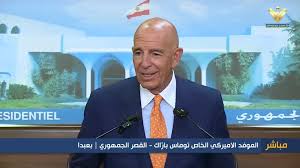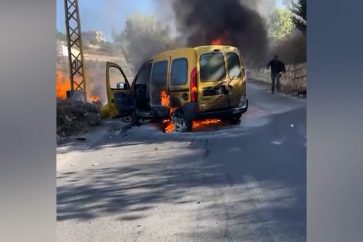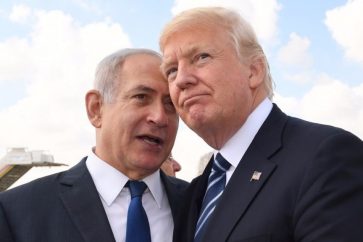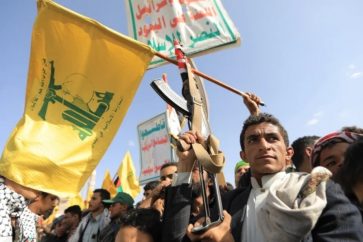The US diplomacy has always tackled the Lebanese causes with much aggressiveness and arrogance; however, in the case of the ambassador Thomas Barrack, many were surprised by his rhetoric expressed after meeting the Lebanese offciials in Beirut, though the essence and content still reflect Washington’s support to Tel Aviv’s demands.
It is so important to mention that certain political and journalistic circles had circulated before Barrack’s visit to Beirut on Monday an atmosphere of escalation and anticipated a threatening rhetoric in the US envoy’s conferences and meetings. Thus, those circles were shocked.
The Republic Presidency announced in a statement this afternoon that President Joseph Aoun presented the US Ambassador to Turkey and Special Envoy to Syria, Thomas Barrack, with Lebanon’s ideas for a comprehensive solution during a meeting at Baabda Palace this morning.
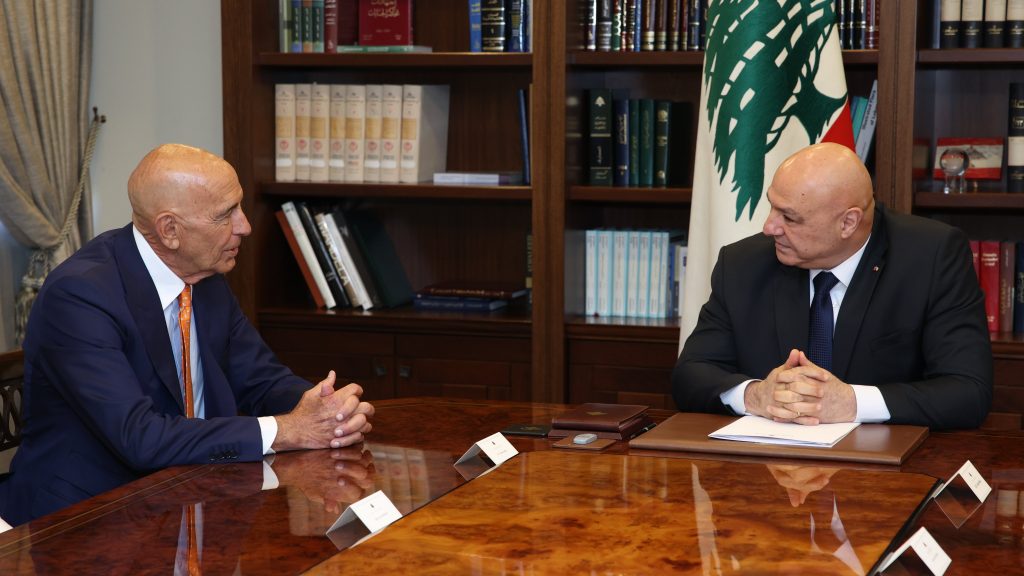
House Speaker Nabih Berri met today at Ain El-Tineh Palace with Barrack and his accompanying delegation, in the presence of US Ambassador to Lebanon Lisa Johnson and Speaker Berri’s media advisor Ali Hamdan.
The meeting, which lasted for more than an hour, addressed developments in Lebanon and the region, as well as political and field developments.
Speaker Berri described the meeting as “good and constructive – taking into account Lebanon’s interests, sovereignty, and the concerns of all Lebanese, as well as Hezbollah’s demands.”

Following his meeting with US Special Envoy Thomas Barrack at the Grand Serail this afternoon, Prime Minister Nawaf Salam affirmed that “confining arms and extending state authority is something the Lebanese have agreed upon since the Taif Agreement.”
He added that “Hezbollah is an integral part of the Lebanese state, and its representatives voted on the ministerial statement.”
“As for the drones and attacks on the South and Bekaa, they are condemned by everyone, and we are seeking to mobilize Arab and international diplomatic support to stop these attacks,” Salam went on.

In his public statements, Barrack described the Lebanese response as “very convincing” and expressed satisfaction with what he heard at the Presidential Palace and from Speaker Nabih Berri. Barrack expressed his understanding of the Lebanese state’s position, emphasizing that there is no timeline for dialogue and that the discussion is open-ended. This position was understood as a consideration of Lebanese concerns, particularly regarding the issue of weapons.
Perhaps notably, Barrack spoke of Hezbollah in a different tone, describing it as “the Lebanese political party represented in the government,” in a language closer to a realistic engagement than a hostile rhetoric. He even emphasized that the issue of the party’s weapons is an “internal Lebanese affair,” thus shifting the discussion from external escalation to internal Lebanese affairs.
However, this rhetoric did not obscure the essence of the American policy. Barrack did not offer any security guarantees to Lebanon, but rather spoke frankly about the failure of the mechanism for monitoring the implementation of the ceasefire agreement. This position was described as dangerous as it reflected that the United States is neither guaranteeing control over the Israeli occupation nor preventing its escalation.
Source: Al-Manar English Website and other websites

